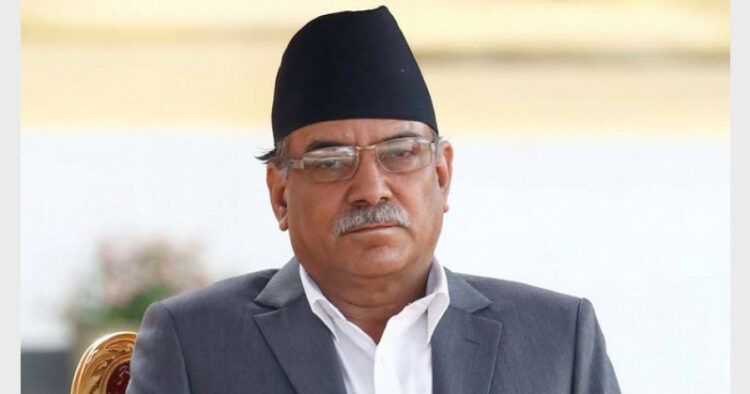Nirendra Dev
A principal communist protagonist Pushpa Kumar Dahal, also known as Prachanda, was virtually toying with the idea of quitting politics and dedicating future time to "writing books".
New Delhi: Just around the time mainland Asia and the world were debating the rise of radical Islam and Taliban takeover of Afghanistan, in another corner in South Asia, there was a debate on the growing ‘irrelevance’ of communism.
In Nepal, a principal communist protagonist Pushpa Kumar Dahal, also known as Prachanda, was virtually toying with the idea of quitting politics and dedicating future time to "writing books".Reportedly, this is what he had told a closed-door meeting of party leaders, according to a report in Nepal’s leading English daily ‘The Kathmandu Post’.
Prachanda was so upset with the situation in the last few years that he went on to remark–“Communist parties in the world have fallen.” He also warned: “If we continue with our current activities, our party will be of new use.” Dahal got the first shocker in terms of a bitter mandate when his party was reduced to a third party position in 2013–within five years of emerging as the single largest party in 2008. For some years, Prachanda and his loyalists did not get their ‘importance’ in Kathmandu’s high-drama power politics, too.
But now, on August 19, 2021, Nepal’s major Leftist political player CPN-UML has split; and observers in the Himalayan nation say this would help the Maoist Centre (of Dahal/Prachanda) to get some relevance as the split would have serious ramifications electorally.
The breakaway UML faction led by former Prime Minister Madhav Kumar Nepal is expected to extend support to the incumbent Prime Minister Sher Bahadur Deuba. However, Lok Raj Baral, a political scientist, has told the media that “A split in the UML was Dahal’s interest, rather than Deuba’s”.
Baral also shared the grim view that communism under Prachanda was losing its sheen in Nepal. He said: "There is a realisation in Maoist Centre (party) that its relevance is over and it does not have any good agenda to sell during the elections.” It remains to be seen whether the formation of splintered groups would help Dahal get back his relevance in Nepal politics.
China connection:
But developments in communist parties in Nepal have some bearing on China as well. Around 2017-18, China had played a role in ‘quick-fix’ trying to bring two communist parties CPN-MN and CPN-UML, together.
K P Sharma Oli dominated the government's CPN-UML scene, but nothing much was done or achieved in terms of ‘communist’ penetration in rural Nepal politically. As Oli’s position strengthened, his detractors Prachanda (Dahal) and Madhav Kumar Nepal and Jhalanath Khanal got together to target Oli and demand his resignation.
Finally, the Nepal Communist Party (formed by united the rival factions in 2018) also split after Oli had dissolved the House of Representatives in December 2020. Nepal’s politics seemed to have little interest in political stability.














Comments